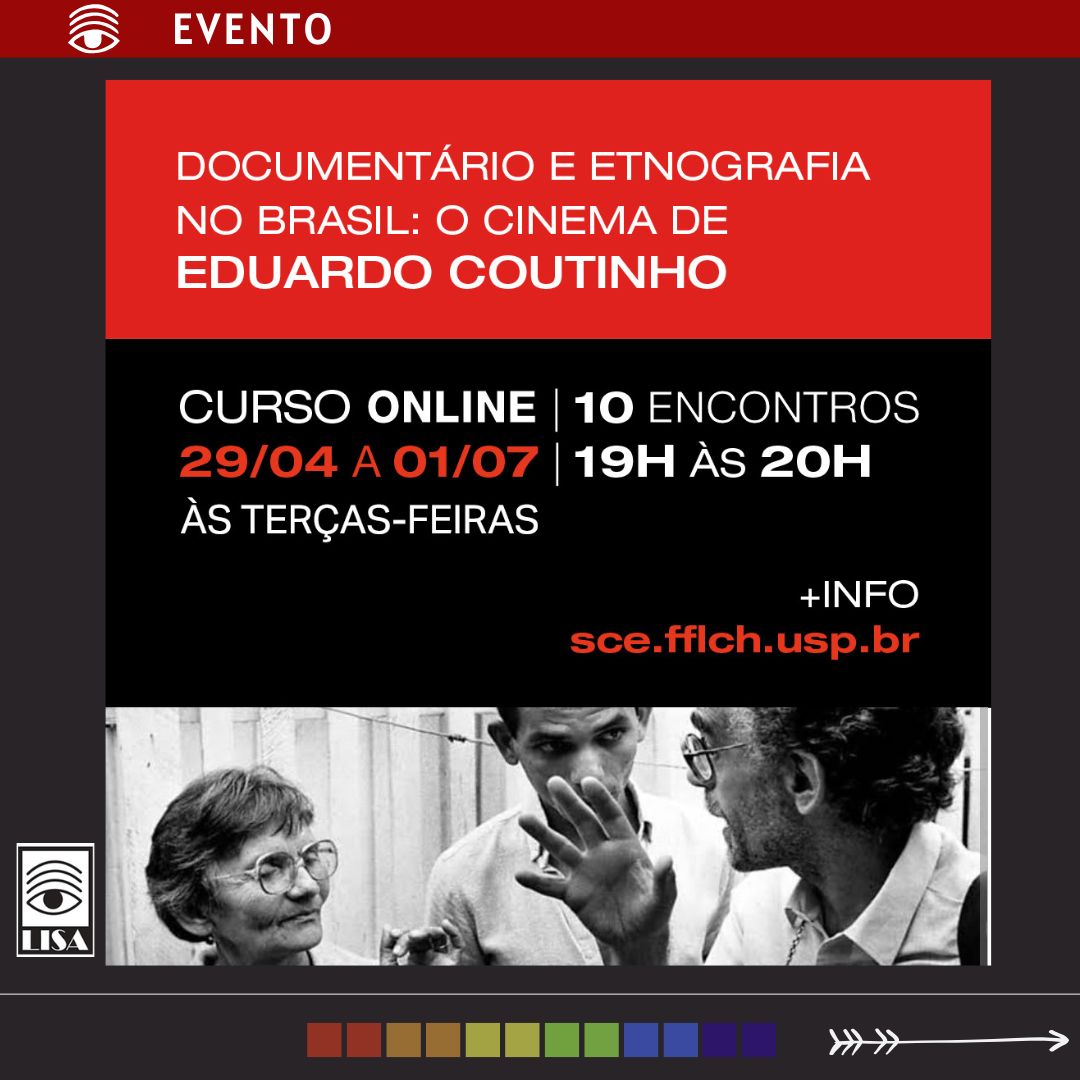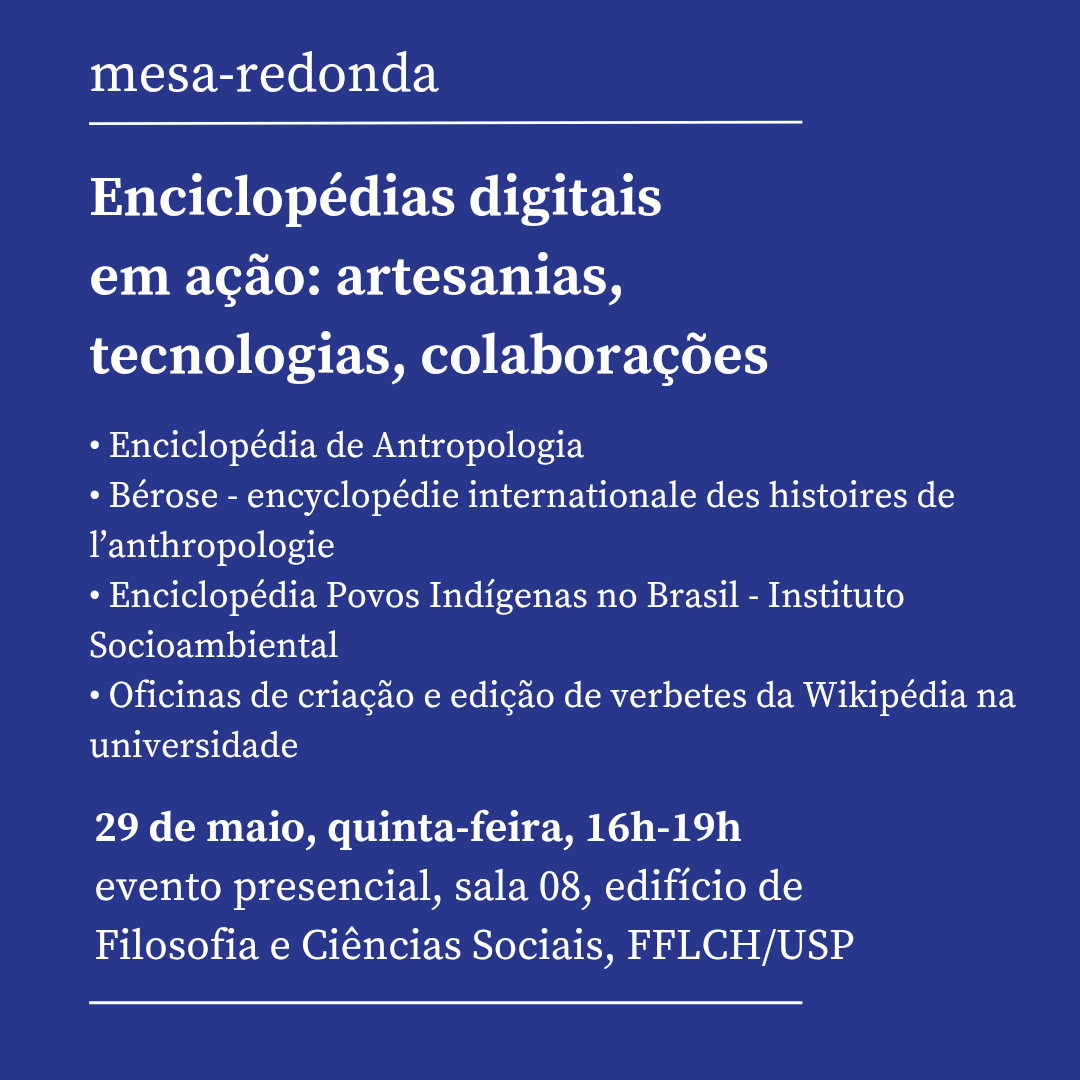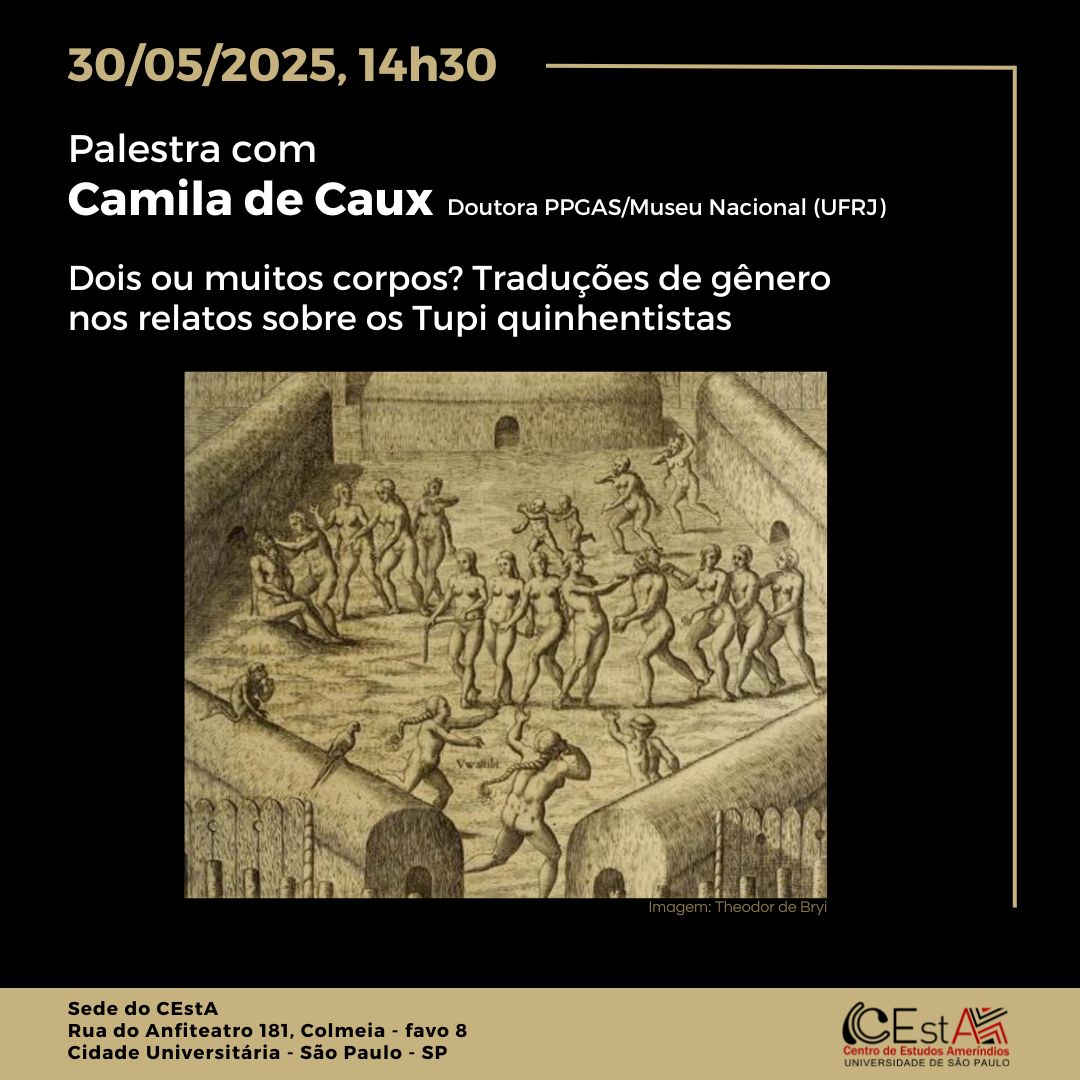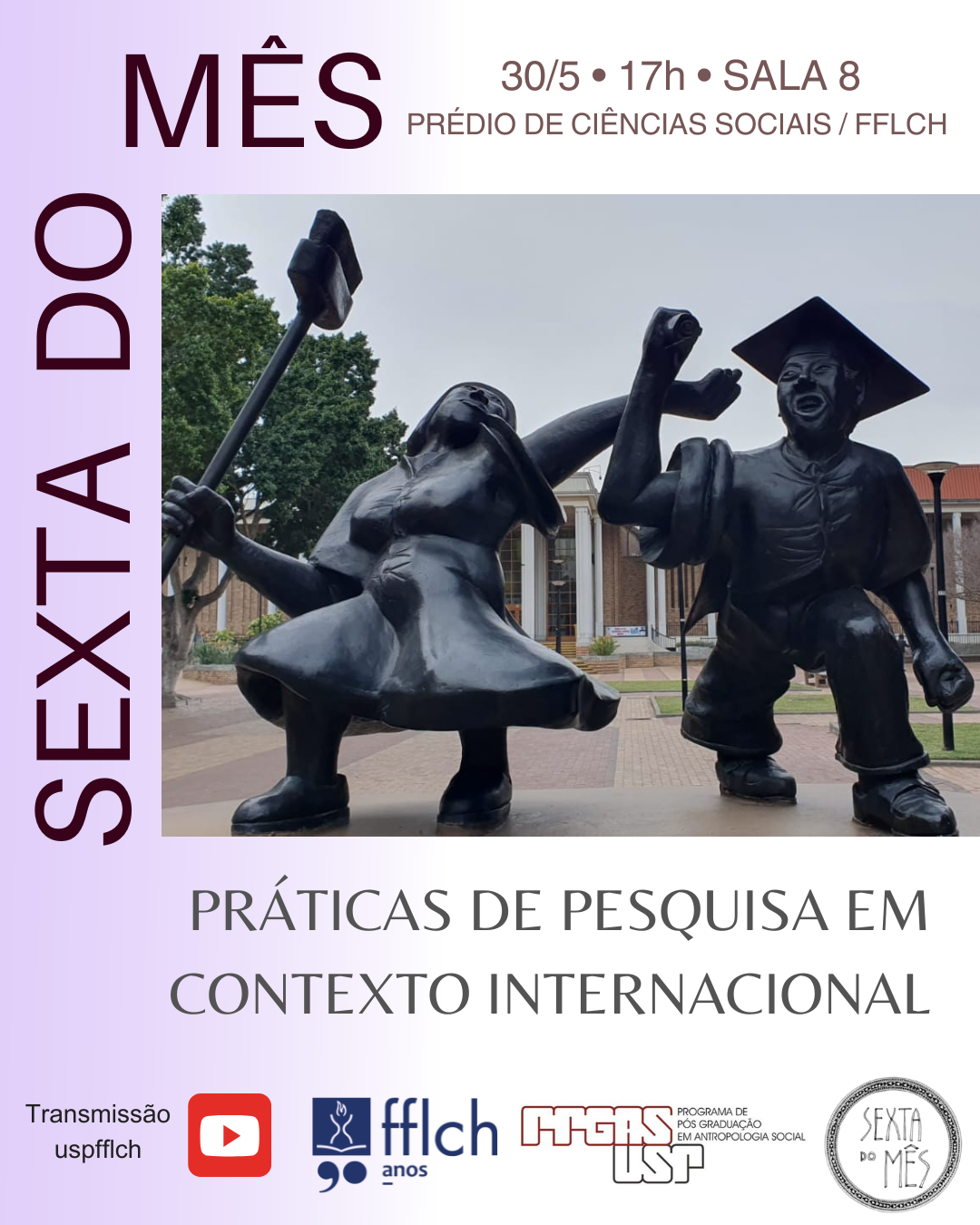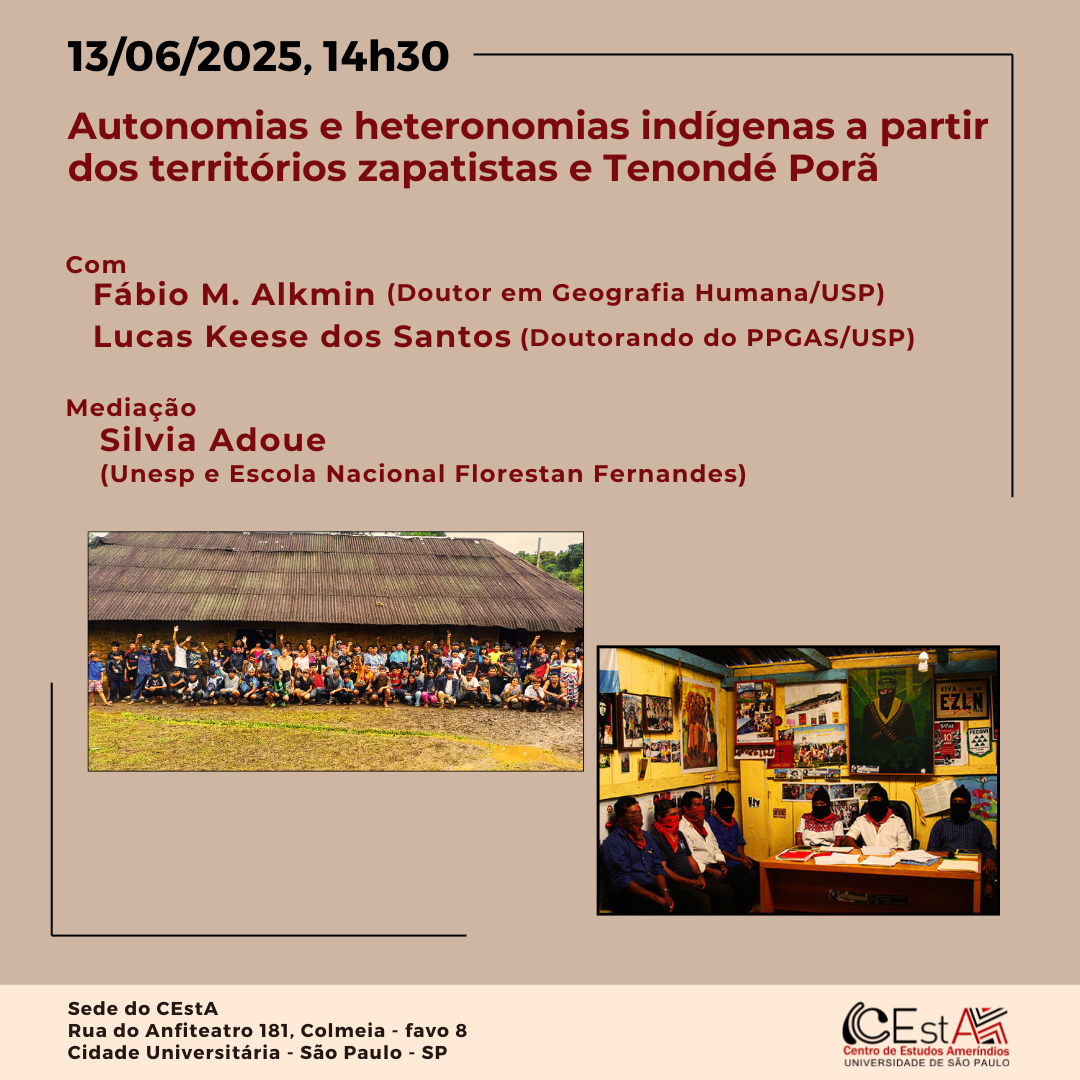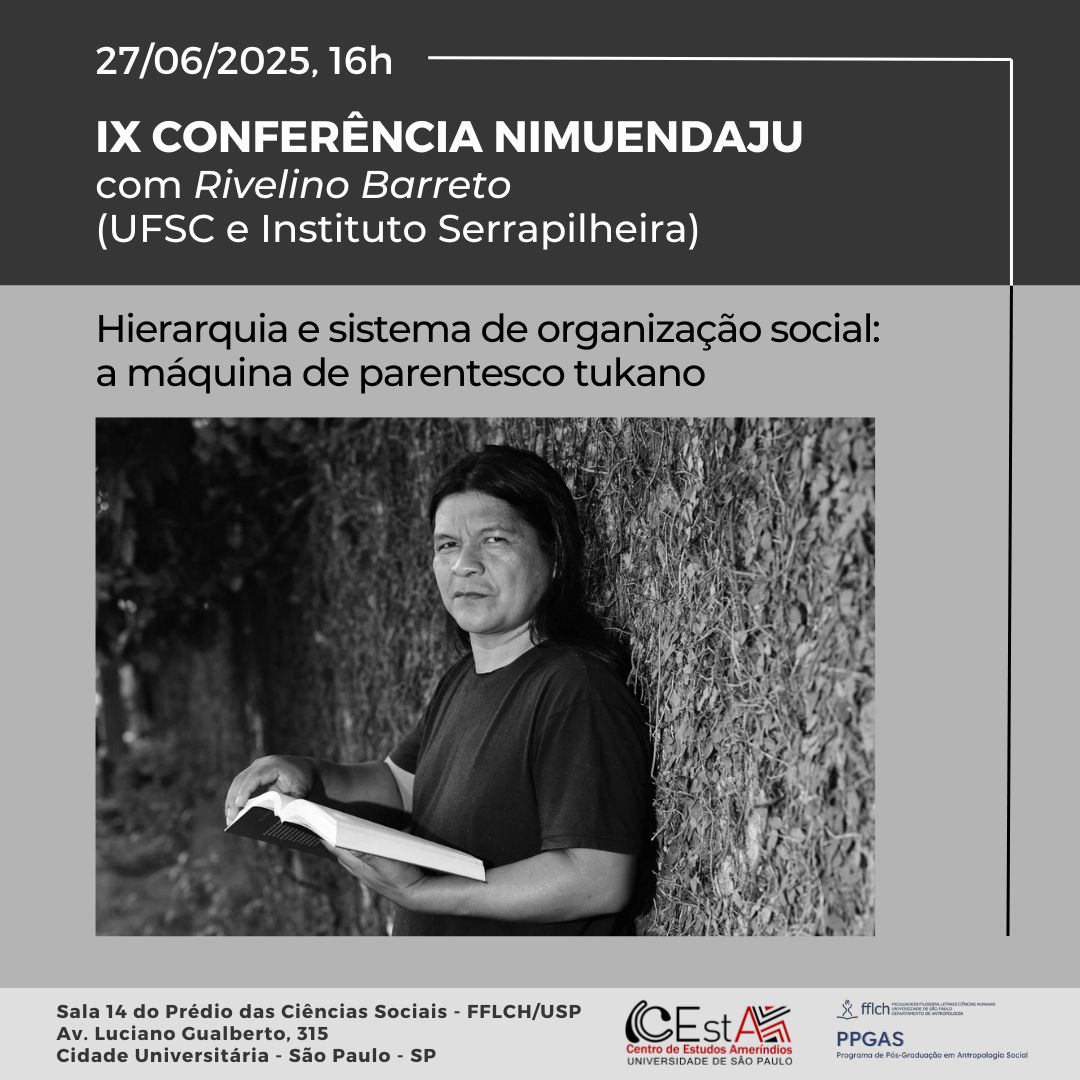Events
Registration for the extension course "Documentary and Ethnography in Brazil: The Cinema of Eduardo Coutinho" is open until April 21, 2025. It will be held from April 29, 2025 to July 1, 2025, in distance learning.
The course aims to explore the relationship between Eduardo Coutinho's documentary cinema and ethnographic practice, highlighting how the Brazilian filmmaker uses documentary as a tool for reflecting on the social reality of Brazil, especially after 1960. Based on the analysis of key works by Coutinho, the course seeks to investigate the specificities of his cinematic approach, which dialogues with anthropological methods of observation, description and the prioritization of the local and the particular. In addition, it intends to discuss the historical and aesthetic impact of documentary cinema in Brazil, considering that Coutinho produced films over half a century, which configures his work as a kind of documentation of the historical, social and political inflections that marked the country during this period. The course also aims to fill a gap in academic studies on Coutinho's work within anthropology, offering a critical and integrated reading of cinema and ethnography.
The Encyclopedia of Anthropology will celebrate its 10th anniversary in 2025! This date calls for celebrations, but above all for assessments and reflections on the work carried out in order to plan future projects.
In this sense, we invite the public to the roundtable "Digital encyclopedias in action: crafts, technologies, collaborations", organized in partnership with the Ethnographic Laboratory of Technological and Digital Studies at USP.
The event will bring together scientific dissemination projects for an exchange of experiences on the production of digital encyclopedias, considering the challenges of collaborative management, editing and writing. In addition to EA, we will talk about the encyclopedias Indigenous Peoples in Brazil, from the Socioenvironmental Institute, and Bérose - encyclopédie internationale des histoires de l’anthropologie; and also about workshops on creating and editing Wikipedia entries, which have been held at the university, promoted by Wikimedia Brasil.
In this talk, I present the first reflections of an ongoing research project dedicated to investigating the processes of elaboration of gendered bodies among the Tupi peoples of the sixteenth century. By tracing the vocabulary of substances abundantly present in the chroniclers’ accounts—references to blood, semen, cauim, puba, among others—I seek to evoke echoes of a cosmopolitics of substances, in which gendered bodies were formed by voluntary, collective, and densely conceptualized acts. In this first approach, I propose a panoramic view: I begin with the role of substances and their flows in the rituals of post-menarche and post-homicide seclusion, which aimed at the formation of adult male and female bodies, and I conclude with a reflection on some figures that escaped the binary colonial technology of genders used by the chroniclers: the transgender figures “tebira” and “çacoaimbeguira,” the young “panema” and the old “uainuy.”
INVITATION | Friday of the Month invites everyone to the May thematic panel! ✨
Theme: “Research practices in an international context”
Anthropology has historically consolidated itself as a field of knowledge intrinsically intertwined with colonial projects, oriented towards the construction and investigation of a supposedly radical Other, conceived from epistemic and political asymmetries, often designed as if it were located overseas. The production of this knowledge has always been crossed by internal and external disputes, including financial ones, involving multiple scales — local, transnational and imperial — that put tension on the ways of knowing, representing and relating to otherness.
The objective of this panel is to share the paths and obstacles involved in conducting ethnographic research in contexts of radical alterity. The proposal of this panel is to reflect on whether this previous construction is acceptable and makes sense in the type of research we currently conduct, on the dynamics of fieldwork and the processes of cultural and linguistic adaptation, and also on the possibilities and challenges related to research funding.
Based on the experience of Zapatista territories in Chiapas, Mexico, the presentation addresses indigenous autonomy as dynamic processes of territorialization and creation of their own forms of sociopolitical organization. In dialogue with other Latin American experiences, we will reflect on how the Zapatistas (re)construct, on a daily basis, autonomous spaces in opposition to the processes of heteronomy imposed by the State and capital.
With
Fábio M. Alkmin (PhD in Human Geography/USP)
Lucas Keese dos Santos (PhD student at PPGAS/USP)
Mediation: Silvia Adoue (Unesp and Escola Nacional Florestan Fernandes)
In Brazil, as in other dimensions of the Highlands and Lowlands of the Amerindian scenario and context, each indigenous ethnic group has a specific, particular, independent and interdependent model of social organization guided by ethnic-wide methodologies that allow for a life followed by self-identification. Therefore, from the point of view of the ethnic scenario of Brazilian indigenous cultures, patrilineal systems and matrilineal systems prevailed as the foundations of self-identification of an ethnic group. More than being systems, they are in fact educational methods of a sociocultural framework. Given the scenario in which the demands of ethnic identifications become fundamental in the face of public policies and academic policies, necessary and differentiated as aspects of indigenous law, we intend to approach the theme Hierarchy and system of social organization: the Tukano kinship machine, as a way of providing debate based on the reading of the Tukano social organization experienced as an educational methodology and as a machine of indigenous social organization in the context of the northwest Amazon.


